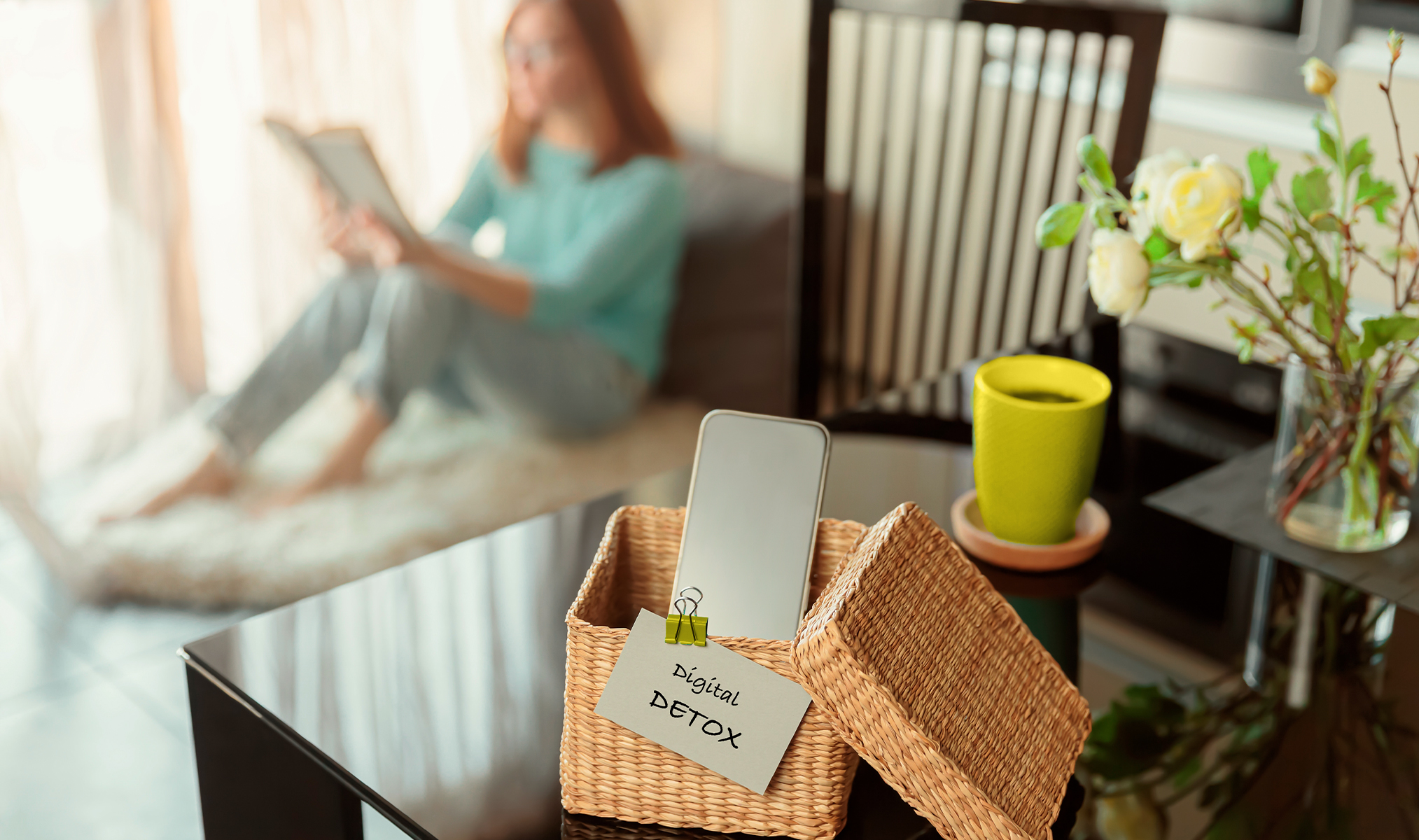Habit 1. Prioritize your tasks
Learning to rank and prioritize the tasks on your to-do list is one habit that can help you achieve a healthy work-life balance. This means identifying which tasks are most urgent and tackling them first before moving on to the less time-sensitive ones.
By effectively prioritizing their tasks, travel agents can avoid feelings of overwhelm and stress, resulting in a more productive workflow.
This opens up more time for activities in their personal lives. According to a study by Forbes, effective task prioritization can lead to a 25% increase in productivity.

Learning to rank and prioritize the tasks on your to-do list is one habit that can help you achieve a healthy work-life balance.
Photo: Andrey_Popov / Shutterstock.com
Habit 2. Set boundaries
Habit two is one many individuals struggle with, especially when they get caught up in the hustle. The habit we are referring to is setting boundaries—not only setting them, though but enforcing them as well.
Travel agents should establish clear working hours and avoid checking emails or taking calls outside of those hours whenever possible.
This boundary should also be communicated to managers and clients; this way, everyone is on the same page regarding business hours. By creating boundaries, agents can prevent burnout and ensure they have time to recharge and focus on their well-being.

By creating boundaries, agents can prevent burnout and ensure they have time to recharge and focus on their well-being.
Photo: fizkes / Shutterstock.com
Habit 3. Account for breaks
In a demanding industry like travel, it’s easy to get caught up in the constant flow of work and forget to take breaks.
Taking regular breaks is essential for avoiding burnout.
Travel agents should consciously step away from their desks and take short breaks throughout the day. When taking breaks, be sure to do something stimulating. This means that you should be doing something other than staring at a TV or your phone. Instead, try to walk outside, read a book, or even listen to music. These activities are more likely to refresh you, more than staring at a screen would.

When taking breaks, be sure to do something stimulating. This means that you should be doing something other than staring at a TV or your phone. Instead, try to walk outside, read a book, or even listen to music.
Photo: Black Salmon / Shutterstock.com
Habit 4. Delegate tasks
Delegating tasks is a pivotal habit in pursuing a work-life balance. Oftentimes, travel agents find themselves juggling more responsibilities than they can handle, from booking flights and accommodation to nurturing client relationships. However, by strategically redistributing tasks amongst team members or outsourcing certain duties, agents can liberate invaluable time for personal time. Also, embracing delegation promotes collaboration and teamwork within the agency.
By working together to achieve common goals, agents can leverage each other’s strengths and support one another in times of need.
This empowers efficiency within the team and alleviates the burden on individual agents, allowing for a more sustainable balance between work and personal life.

Delegating tasks is a pivotal habit in pursuing a work-life balance.
Photo: mapo_japan / Shutterstock.com
Habit 5. Practice time management
Time management is an important skill and habit as it is the #1 way to balance your professional and personal obligations and aspirations. For travel agents, adeptly prioritizing tasks, setting realistic deadlines, and mitigating the temptation of procrastination is imperative.
Agents can ensure the optimal time allocation to fulfill work commitments and leisure activities through meticulous planning of daily and weekly schedules.
Try strategies like setting timers on your tasks, prioritizing digital tools, and avoiding overbooking yourself.
Such tactical time management enhances productivity and job satisfaction and facilitates a seamless integration of work and personal life, fostering a sense of fulfillment and harmony.

Time management is an important skill and habit as it is the #1 way to balance your professional and personal obligations and aspirations.
Photo: Pixel-Shot / Shutterstock.com
Habit 6. Don’t be afraid to say “No”
Our sixth habit, learning to say no, ties back into enforcing the boundaries we discussed earlier. Travel agents often encounter pressures to accommodate additional tasks or extend work hours to meet client demands.
However, succumbing to perpetual agreement can precipitate burnout and fatigue.
To avoid this, agents should learn to establish clear boundaries and politely decline requests that encroach upon their personal time. This way, they can preserve their energy and nurture a healthier work-life dynamic. This ultimately enhances their overall well-being and can even improve productivity while at work.
Habit 7. Disconnect for a little
Sometimes, even when you want to, it can be hard to take time for yourself when your phone is constantly blowing up with notifications. One way to combat this is to disconnect for a little while. Consider turning your phone off (or just blocking notifications) on the weekend and after a certain hour on weekdays. Additionally, refrain from engaging in social media or browsing the internet aimlessly during your downtime.
Constantly being connected can lead to burnout and diminish your overall well-being. Instead, opt for other activities such as reading a book, practicing mindfulness, or spending quality time with loved ones. Remember, disconnecting from digital distractions is essential for maintaining a healthy work-life balance and nurturing your mental and emotional health.

Consider turning your phone off (or just blocking notifications) on the weekend and after a certain hour on weekdays.
Photo: Svittlana / Shutterstock.com
Habit 8. Prioritize self-care
Self-care is something that cannot be overstated. As a busy travel professional, you know all too well that your needs can sometimes find themselves in the back of your mind. However, prioritizing self-care is essential for balancing your busy professional life with your personal one.
So, what exactly does self-care look like? Well, it varies from person to person. However, the goal remains the same: rejuvenating the mind and body. For example, engaging in regular exercise routines is a form of self-care.
Exercise helps to energize the mind and body, enabling professionals to perform at their best amidst the demands of their profession.
This is mainly because when we exercise, our bodies release good-feeling chemicals such as dopamine, which reduces stress and helps clear our minds. Other forms of self-care can include mindfulness practices such as meditation. These offer a valuable opportunity for travel agents to step back from the hustle and bustle of their daily routines, allowing them to cultivate a sense of inner calm and mental clarity. These abilities are essential for navigating the complexities of their work and maintaining a healthy mindset.

Other forms of self-care can include mindfulness practices such as meditation.
Photo: Prostock-studio/ Shutterstock.com
Furthermore, pursuing hobbies and interests that evoke joy and relaxation plays a role in self-care. Whether it’s painting, gardening, or simply spending quality time with loved ones, engaging in activities outside of work provides agents with a much-needed respite from the pressures of their profession, allowing them to recharge and rejuvenate both mentally and emotionally.
Habit 9. Establish realistic goals
Setting realistic goals is not just about jotting down a to-do list; it’s a strategic approach that involves careful consideration and planning. In the dynamic environment of travel, establishing ambitious and achievable goals is crucial for agents trying to stay on top.
To do this effectively, travel agents must first assess their workload and available resources. They need to take stock of their current commitments and capabilities, understanding what they can realistically accomplish within a given timeframe.
By setting goals that align with their capacity and resources, agents can avoid the pitfalls of overcommitment and burnout.
Furthermore, setting realistic goals involves considering external factors such as time constraints and market conditions. Travel agents operate in a constantly evolving industry with fluctuating demand, seasonal trends, and unforeseen challenges such as natural disasters or geopolitical events. By factoring in these external variables when setting goals, agents can adapt their strategies and plans accordingly, ensuring that their objectives remain achievable and relevant.

Setting realistic goals is not just about jotting down a to-do list; it’s a strategic approach that involves careful consideration and planning. In the dynamic environment of travel, establishing ambitious and achievable goals is crucial for agents trying to stay on top.
Photo: KieferPix / Shutterstock.com
Habit 10. Seek support
Travel agents often juggle multiple tasks simultaneously, such as coordinating flights, accommodations, and activities for clients. This requires exceptional organizational skills and attention to detail. The pressure to meet clients’ expectations and deliver exceptional service can sometimes lead to overwhelming stress.
Colleagues within the travel industry can serve as valuable resources. They can share knowledge and experience, provide advice, and offer assistance with handling complex bookings. Collaborating with others in the same profession can foster a supportive environment where agents can learn from one another and rely on each other’s expertise.
Individuals should also ensure that they build a strong support group within their personal lives. This will help them balance their personal and professional stress in a healthy manner. By opening up to friends and family, you can reduce your stress and receive help or guidance when needed.

By opening up to friends and family, you can reduce your stress and receive help/guidance when needed.
Photo: Prostock-studio / Shutterstock.com
Decrease your load with RateHawk
Discover the power of RateHawk, the ultimate online booking tool designed to streamline travel agents’ workloads.
With access to over 2.5 million hotels worldwide from 230+ suppliers, along with air tickets, transfers, car rentals, and other essential services, RateHawk is your one-stop solution for all travel-related bookings.
Our seamless API integrations ensure smooth operations for your business, while our mobile app offers flexibility and convenience for booking on the go. Plus, with our “easy to interact” features, such as Pay by Link, travel agents can speed up their bookings. Say goodbye to overwhelming tasks and hello to efficiency with RateHawk.
Cover design by freepik/freepik.com


